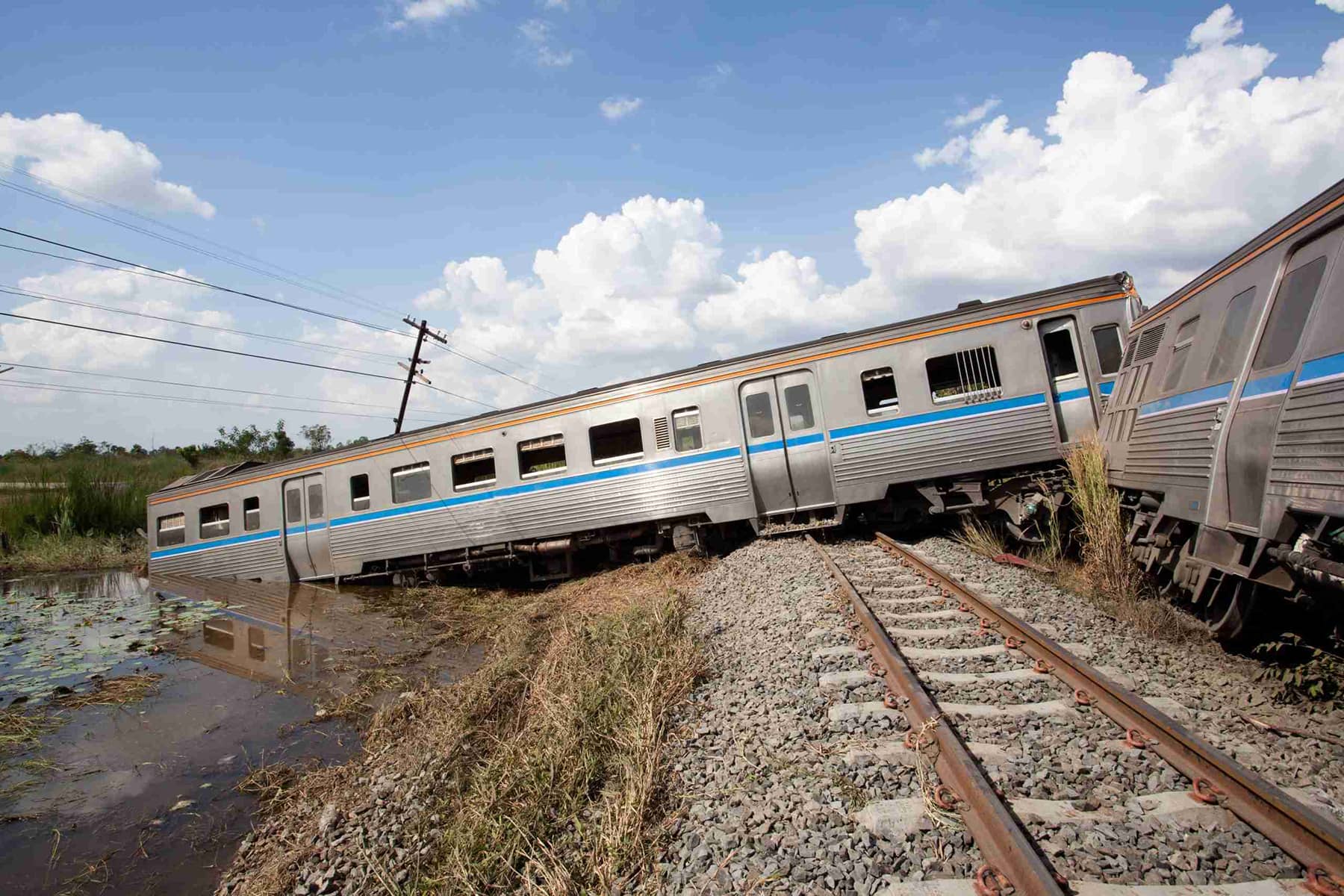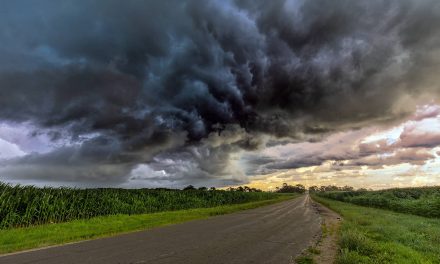
Putin’s attack on Ukraine is producing a series of crises which are going to, in all probability, bring a period of great pain and instability to the world and to America in the near future.
Republicans are already working to exploit it. By the election this fall much of the unity that exists because of today’s Ukraine passion will be exhausted, but the crisis it’s produced will just be beginning. And, just as Putin probably now hopes, it’ll stretch some democracies to the breaking point.
Americans think we have stood down Putin, but the forces he represents — strongman authoritarian neofascism combined with hard-right “Christian” nationalism — will grow a lot stronger over the next few years as fallout from his war in Ukraine.
If we are not ready for it, those forces of bigotry and nationalism could overwhelm the U.S. and other democracies around the world, particularly across Europe. Even if we are ready, oligarchs and wannabee strongmen are going to do their best to exploit the situation.
Those multiple forces now converging to threaten democracy, although many are the result of Putin’s murderous war against Ukraine, have also been brewing since the 1980s and Reagan’s neoliberal revolution. They include a refugee crises, a shortages and spikes in the cost of both fuel and food, and a worldwide recession.
None of these are world-ending, but each has an exploitable political impact. Combined, they can destabilize governments, change which parties are in power, and even flip democracies into autocracies.
Refugee Crises
Think back to how Fox “News” and the GOP hyped the “refugee caravans” we saw coming here to the U.S. in 2016. As climate change and democratic crises hit Central America over the past decade — particularly Guatemala — the Trump campaign pounded on the Obama administration, falsely claiming the president had “opened” the southern U.S. border to “anybody who wanted” to arrive.
It was pure demagoguery to gin up the racist vote in the US, but social media doesn’t stay in the US: the Fox and GOP talking points spread widely across Central America, where people believed the message coming from seemingly credible sources like America’s largest cable TV network and Republican politicians in the U.S. Congress.
Thinking U.S. immigration policy had changed and our borders were “open,” desperate people hit the road for our southern border, creating a self-fulfilling prophecy that filled the media for weeks and helped Trump and Republicans win that election.
Republicans continue to exploit that to this day, and a couple of Trump‘s good friends like Steve Bannon even scammed Trump supporters out of millions with a phony effort to build a wall. When Bannon got busted, Trump pardoned him – like he did so many of his other associates accused or convicted of crimes.
The political damage to Obama and his Secretary of State, Hillary Clinton, though, helped flip the White House to Trump and Congress to the GOP.
So we can see the impact that immigration surges, even tiny ones, can cause on society and politics, and how they can be exploited by cynical, power-hungry politicians.
Imagine if, instead of a few thousand refugees massing on our southern border, over 30 million Central Americans had actually made their way into the U.S. and were today trying to fined housing and work across the country.
Just think of how Republicans would use that as a club to beat the Biden administration over the head:
Few speak the language. Some will be criminals and their crimes that will be splashed all over the papers, even if it’s desperate people engaging in petty theft or prostitution. Some will “take jobs” from “good Americans.” Others will “burden” our social welfare system. Their need to eat and find housing will cause food shortages and drive up prices.
There are 360,000 refugees currently in Moldova, a fledgling democracy on Ukraine’s border with only 4 million citizens and an active, pro-Putin rightwing political movement.
That number of immigrants in Moldova is the equivalent of 30 million “Mexicans” – to use Trump’s phrase – “invading” America. It’s already straining Moldova’s politics.
Similarly, the 2.2 million Ukrainian refugees in Poland (pop. 37 million) is the equivalent of 21 million Central Americans flooding into the USA in less than three weeks. Already the backlash in Poland has begun, as Mateusz Mazzine wrote yesterday for Foreign Policy magazine:
Current deputy prime minister and leader of the ruling Law and Justice (PiS) party, Jaroslaw Kaczynski, stated that refugees “will not abide by the Polish law.” Former interior minister Joachim Brudzinski depicted them as “young, horny bulls called ‘refugees,’” and Polish President Andrzej Duda feared they carry a risk of “possible epidemics.”
It is the same all over Europe: over 10 million Ukrainian refugees, while today creating a humanitarian crisis, will be the foundation for a democracy crisis within months, one that will continue long after any sort of resolution to the Russian invasion is reached.
Worldwide shortages and spikes in the cost of both fuel and food
Oil prices worldwide were rising as the pandemic eased in large part because the 15% production cuts Trump negotiated in 2020 with Russia and Saudi Arabia remain in place. The Saudis are “refusing to take Biden’s phone call” about raising oil production back to 2019 levels.
But the record-breaking shock came when the price of oil jumped an additional $30 a barrel the week Russia invaded Ukraine, spiking petrol prices in the U.S. and across Europe above anything seen before.
Republicans are already exploiting that now, as you can see from an email I received yesterday from former Trump Energy Secretary Rick Perry over the letterhead of the “America First Policy Institute”:
“As you have no doubt noticed, gas prices are way up. President Biden is trying to use Russia’s actions in Ukraine as an excuse for the increase in costs. The truth is that these prices were inevitable because of the actions President Biden has taken since his first day in office.
“Under President Trump, we invested in American energy, which boosted our economy and let Americans pay as little as $2 for a gallon of gas. The Biden Administration reversed the policies that gave us energy independence, embraced the radical Green New Deal, and forced us to again rely on foreign oil.”
Perry is being dishonest and manages to forget the pandemic, but this is just the beginning of their exploiting the challenges caused by Russia’s invasion of Ukraine.
And that is true of both the Republicans here and similar oligarch-associated rightwing political parties across Europe, who are also using pandemic- and war-caused inflation as a political weapon against popular political groups currently in power.
As Gideon Rachman notes for the Financial Times, there is plenty of raw material:
“In the UK, households could see a 50 per cent increase in energy bills in April, followed by another 50 per cent rise in October.”
And the UK imports little Russian oil or gas. As Germany and the rest of continental Europe try to cut off Russian imports, the price of energy could not only spike prices well over 150% but also lead to rationing of fuel and gas for heating across Europe and in other countries that now depend on Russian fuel imports.
Food is even more problematic, although those shortages will probably bite much later this year and throughout next year, as Russia and Ukraine account for as much as a quarter of the world’s wheat exports.
Both countries are also major exporters of fertilizer, and a shortage in that food-producing raw material has already led Brazil’s President Bolsonaro – who is supporting Russia in their invasion of Ukraine – to push to ignore treaties with indigenous tribes and begin mining phosphate and other fertilizer ingredients in sensitive parts of the Amazon.
We have seen crisis like these — only far less drastic and sudden — literally reshape the politics of the world in the past few years.
When climate change drove the deserts about 100 miles south in North Africa over the past two decades, it produce a 2010-2012 spike in the price of wheat and other staples along with a flood of hundreds of thousands of land-displaced farmers into the cities of Syria, Libya and Tunisia.
The result was a revolt against the Syrian government, starting a civil war in that country and a refugee crisis that spilled over into Europe. A street vendor in Tunisia setting himself on fire as a protest against the higher wheat prices, and that act of self-immolation tripped off what we call the “Arab Spring” that eventually flipped Egypt into a military dictatorship, brought massive Russian bombing of Aleppo, and destabilized the entire region.
Imagine the same thing — only far worse — happening all across the world as food prices spike and democracies – particularly young, emerging ones – struggle to deal with the protests and political instability resulting from inflation caused by food and fuel shortages.
A Fed, fuel, food, and Covid-caused market crash?
The U.S. Federal Reserve has already increased interest rates once and intends to do it more often in the near future, an action that has produced a recession nearly every time it has been tried in the past 75 years.
Former Labor Secretary Robert Reich also calls it the “wrong diagnosis” and the “wrong remedy.”
If he is right, the ensuing recession be a crisis for Democrats, as well as a windfall this year and in 2024 for Republicans. And when the U.S. catches a cold, the world often gets pneumonia.
As Paul Krugman notes in The New York Times:
“Policy and events are seriously putting the brakes on the rapid expansion the U.S. economy has experienced since the pandemic recession.”
Imagine the combination of soaring inflation, fuel and food shortages, and a worldwide market crash: demagogues in every democracy in the world will crawl over each other to get in front of a TV camera and proclaim that they, alone, have the solution to their nation’s problems.
And that does not begin to count in the possible shortage of consumer goods in the U.S. and across Europe because of China’s Covid policies.
That nation had opted for a “zero-COVID” program that depended heavily on lockdowns and quarantines, causing many in China to ignore or forego vaccinations. And even those vaccinated have used a Chinese vaccine that doesn’t provide the protection of the mRNA vaccines available in the Western world.
As a result, when Omicron hit China this week they had to shut down Shanghai — China’s biggest city and a huge export port — along with a few other cities, raising the specter of another “supply chain crisis” of consumer goods like we saw during China’s big lockdown last November.
From the point of view of rightwing parties around the world, goods shortages will be another hammer to take to democratic governments, including the Biden administration.
Hang onto your hat: things are going to get wild.
This coming crisis of war, refugees, food, fuel, a dysfunctional Fed, and a worldwide pandemic could rival anything the world has seen since the 14th century.
Worldwide adoption of neoliberal “reforms” over the past 40 years have thrown in an additional factor: an explosion of consolidated monopolistic businesses and the billionaires they create, who bring along their very own brand of authoritarian and oligarchic political activism and media control – including the social media they own.
Republicans here and their conservative oligarch-owned colleagues inside other democracies will exploit every piece of it. They will scream about the deficit, yell about the price of fuel and food, howl about crime and immigrants: all to try to frighten people and support their claim that government is their private possession and we therefore never again need to have genuinely democratic elections.
I do not see any easy answers here. Great wealth and hard-core authoritarians have embedded themselves deeply in the fabric of the Republican Party and in many similar European parties, particularly in Hungary and Poland.
That said, it is important to remember that the last time we faced a worldwide depression and war — roughly 80 years ago — we and Europe came out of it far more progressive and democratic. Although the toll, in both wealth and blood, was horrific.
© Thom Hartmann, used with permission. Originally published on The Hartmann Report as The Evil Reason the GOP Will Exploit Every Crisis The World Is Facing
Subscribe to The Hartmann Report directly and read the latest views about U.S politics and other fascinating subjects seven days a week.















